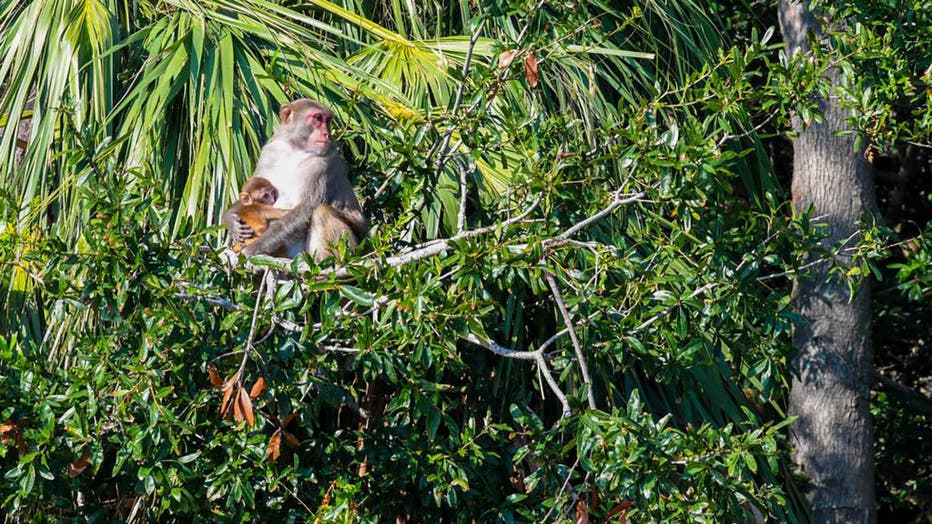Escaped monkeys update: More than half safely recovered, several still on the loose
COLUMBIA, S.C. - More than half of the monkeys that had escaped from a compound in South Carolina last week have now been recovered unharmed, officials said Sunday.
The animals were being bred for medical research.
Twenty-four monkeys were captured on Sunday. Their recovery came a day after another of the 43 escaped monkeys was recovered.
RELATED: 43 monkeys escape from South Carolina primate research facility
A "sizeable group" remains active along the compound's fence line and bedded down in the trees for the night, police in Yemassee, about 50 miles (80 kilometers) northeast of Savannah, Georgia, said in a statement. Veterinarians have been examining the animals and initial reports indicate they are all in good health, police said.

FILE: An infant rhesus macaque is held by an adult as photographed on Sept. 20, 2024, on Morgan Island, in Beaufort County, South Carolina, just north of St. Helena Island(Drew Martin/The State/Tribune News Service via Getty Images)
The Rhesus macaques made a break for it Wednesday after an employee at the Alpha Genesis facility in Yemassee didn’t fully lock a door as she fed and checked on them, officials said.
Since their escape, the monkeys have explored the outer fence of the Alpha Genesis compound, cooing at the monkeys inside. The primates continued to interact with their companions inside the facility Saturday, which police have said was a positive sign.
RELATED: Escaped monkeys update: 1 safe, 42 still loose
Alpha Genesis CEO Greg Westergaard has said that efforts to recover all the monkeys will continue for as long as it takes.
The monkeys are about the size of a cat. They are all females weighing about 7 pounds (3 kilograms).
Alpha Genesis, federal health officials and police all said the monkeys pose no risk to public health. The facility breeds the monkeys to sell to medical and other researchers.
Alpha Genesis provides primates for research worldwide at its compound in Yemassee, according to its website.

